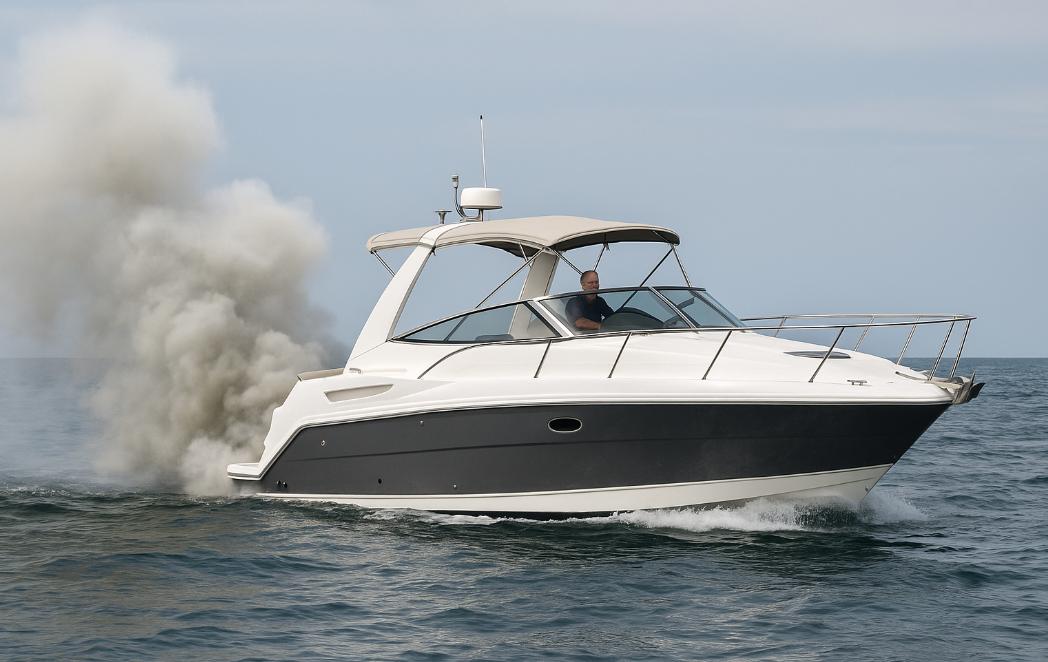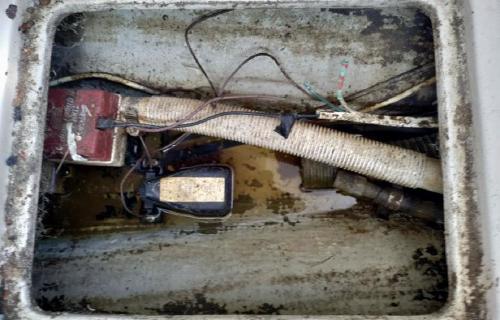Buying a used boat can feel a little like stepping into the Wild West—especially if it’s your first time or you’re looking at something big and expensive. You’re dealing with different standards, varying honesty levels, and a lot of unknowns, so bringing in a marine surveyor is less a luxury and more of a necessity. But not just any surveyor—and definitely not one recommended by the seller’s broker if you’re buying from afar.
So what exactly does a marine surveyor do, when should you bring one in, and how do you avoid hiring a dud? Let’s dive into the real-world pros and cons of using a marine surveyor when buying a used boat—especially the bigger ones.

First Off—Yes, You Probably Need One Anyway
Let’s clear this up: if you’re buying a boat and plan to insure it (which, let’s be honest, you should), then you’ll likely need a current marine survey to satisfy the insurance company. Most insurers won’t touch a used boat without a survey report that covers:
- Structural integrity (hull, deck, bulkheads)
- Mechanical systems (engine, steering, electrical)
- Safety gear (bilge pumps, fire suppression, life-saving gear)
- Valuation (how much the boat is actually worth)
- Any visible defects, damage, or corrosion
In fact, for boats over 10–15 years old and especially ones over 30 feet, it’s basically a requirement. So even if you skip the survey during the purchase, you might end up doing one later just to get it insured.
But here’s the key point: doing the survey before you buy gives you the power to walk away—or renegotiate.
Pros of Hiring a Good Marine Surveyor
Let’s start with the upside. A good surveyor can save your bacon. Here’s how:
They find what you can’t see.
You might spot a soft deck or hear a noisy transmission. A surveyor goes way beyond that. They tap around the hull, check moisture levels with a meter, sniff for blistering in fiberglass, and run tests on electrical and plumbing systems. Stuff you’d never catch during a 20-minute dockside visit.
They help you avoid buying a lemon.
Imagine dropping $150K on a cruiser that looks fine but has rotted stringers under the sole or corrosion in the fuel tanks. A surveyor will spot red flags and tell you what’s an easy fix—and what’s a deal-breaker.
They strengthen your negotiating position.
A survey report is leverage. If the boat needs $12,000 worth of repairs, you’ve got it in writing. That gives you ammo to ask for a price cut—or walk.
They provide an unbiased valuation.
Sellers and brokers will often “price with their heart.” A surveyor gives you a cold, honest number that reflects the actual condition of the boat and the local market. This is especially important if you’re financing.
They make insurance and registration easier.
Insurers and transport companies trust professional survey reports. It smooths out the paperwork process and avoids surprises when your underwriter asks about hull thickness or the age of the fuel lines.
The Catch? Not All Surveyors Are Created Equal
Here’s the thing: anyone can print up business cards and call themselves a marine surveyor. There’s no universal license. You’ll see people with certifications from SAMS (Society of Accredited Marine Surveyors) or NAMS (National Association of Marine Surveyors), which helps—but experience still matters.
Not all surveyors are great. Some are glorified clipboard holders. Others are basically there to green-light a sale.
That’s why who you hire matters just as much as whether you hire one.
The “Don’t Use a Local Surveyor” Rule (When Buying Long Distance)
This might feel a bit paranoid, but it’s real: if you’re buying a boat far away from home, don’t use a surveyor recommended by the seller’s broker. Brokers and surveyors often work in small, tight-knit circles, especially around marinas. If they’ve worked together before—and one wants the sale to close—it’s not hard to imagine the survey being “softened.”
Here’s a scenario we’ve seen play out:
A buyer flies in to inspect a boat in Florida. The broker recommends a “great local surveyor.” The survey is clean, the boat looks good, and the deal closes. Two months later, the buyer finds hidden delamination under the deck and a leaking fuel tank—stuff any decent survey should’ve caught. Oops.
Instead, find someone outside the seller’s network, or better yet—bring in your own surveyor from home if the travel budget allows. It might cost more upfront, but it’ll keep the results honest.
A Good Surveyor Isn’t Enough—Bring in Your Own Mechanic, Too
A marine surveyor is typically not a mechanic. They’ll do basic engine checks (look for corrosion, check fluids, maybe a compression test if asked), but they won’t tear into the engine or run full diagnostics.
That’s where bringing in your own marine mechanic can make a huge difference—especially if:
- The boat has inboard diesels
- It’s older than 10 years
- The seller has no engine service records
- You’re not confident in your own mechanical skills
If you already know a trusted marine mechanic from your network, bring them. If not, spend time researching one near the boat and pay for a full engine inspection or sea trial supervision.
Buying Cross-Border? Use a Broker or Get Burned

If you’re buying a boat across a border—say, you’re in Canada and buying from the U.S.—you need more than just a clean survey. You need someone who understands:
- Import taxes and duties
- Transport logistics
- Compliance with local marine safety laws
- Currency exchange and wire transfers
- Bill of sale requirements for your province
You can do all that yourself… but if you screw it up, the savings vanish. One paperwork mistake can cost you thousands in penalties, or even get the boat stuck in limbo.
A good yacht broker (emphasis on good) earns their keep when:
- You’re importing/exporting
- The deal is complicated
- You’re a first-time buyer of a big boat
They’ll help structure the offer, verify titles, assist with closing, and even recommend legit surveyors and mechanics (that you vet).
When Can You Maybe Skip the Survey?
There are a couple rare scenarios when skipping the full survey might be reasonable:
- You’re buying a small boat (under 25 feet) for under $10K, and you don’t need insurance
- You’re getting the boat for free or close to it, and you’re ready for a full restoration
- You’re an experienced marine mechanic or builder, and can inspect it yourself
But for everyone else? It’s just not worth the risk.
How to Find a Great Surveyor
Here’s what to look for when hiring a marine surveyor:
- Certifications – Look for SAMS, NAMS, or ABYC affiliation
- Experience – 10+ years is ideal, especially with your type of vessel
- References – Ask for past clients, especially ones who didn’t buy the boat after the survey
- Sample reports – Review one of their reports to see how detailed it is
- No conflicts – They should work only for you, not the seller or broker
Also ask if they can attend the sea trial and include photos, valuation, and moisture readings in the report.

So What’s the Verdict?
Getting a survey is one of the few parts of buying a boat that actually gives you control. It lets you see what you’re really getting, helps with insurance, and gives you leverage if things need fixing.
You’re buying something that lives in saltwater, was probably built 10–30 years ago, and has a bunch of mechanical and electrical systems. Even the best-kept boats hide problems. A surveyor won’t catch everything, but they’ll catch enough to justify their fee 9 times out of 10.
Disclaimer: Information provided here is for general educational purposes and may not reflect the most up-to-date marine regulations, pricing, or industry practices. Always verify with certified professionals when making a significant boat purchase decision.


Use the share button below if you liked it.